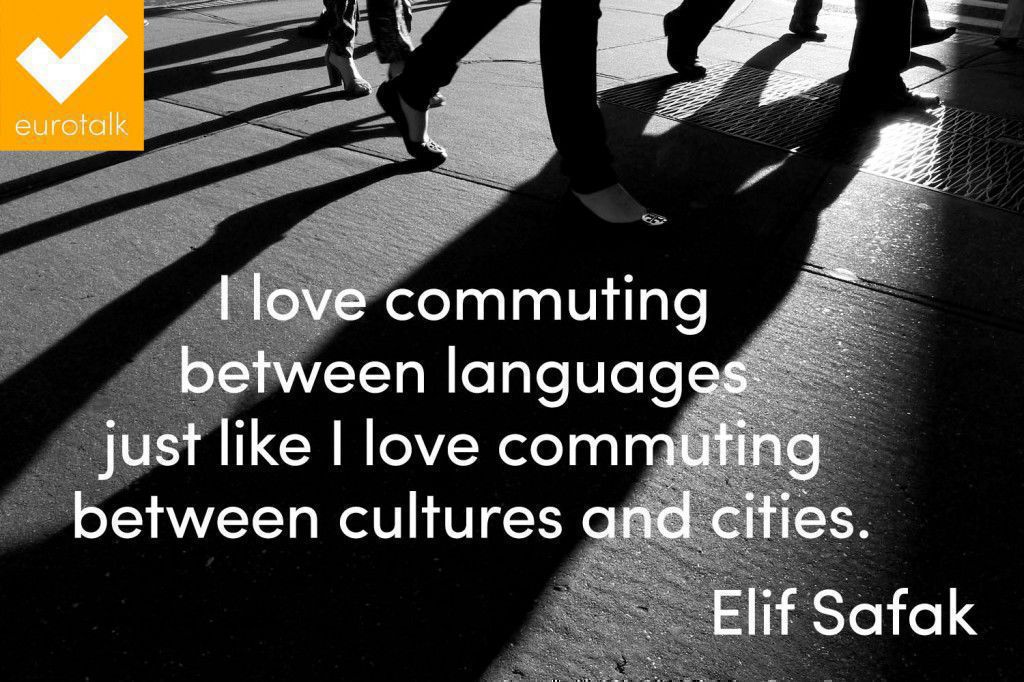Why I’m learning Italian in January
So I’ve jumped on the bandwagon and I’m taking part in the New Year uTalk challenge too.
It took me a while to finally decide on Italian. I was going to attempt Arabic or Mandarin; however given the time frame of just one month, I thought the challenge would be too great for myself. However I will attempt either Arabic or Mandarin at some point next year, you can hold me to that!
So why Italian I hear you say? Well there are many reasons.
I often go skiing in Italy and it’s very different to skiing anywhere else in Europe, as not many people speak English. It can be quite a struggle sometimes, so hopefully by the end of January with my newfound Italian it should be a breeze.
Near the office there is an Italian delicatessen, which sells some seriously good food. When you enter they’re always talking to you in Italian, and as I speak none I feel slightly embarrassed that I can’t respond in their own language. My goal by the end of January is to be able to order my food in Italian, as well as have a conversation with the employees there.
My final reason is that there are many beautiful cities that I wish to visit over the next few years in Italy. Even though it is a given that I will do the ‘touristy’ things whilst I’m there, I would also like to think I may be able to go off the beaten track and find some true wonders hidden from the tourists. I also don’t want to be a typical tourist and ignore the locals; I want to be able to interact with them and get a real feel for the city.
So those are my reasons for learning Italian.
Anyone else going to join me?
Amy
Why I’m Learning Slovak in January
Today we’ve got a guest post from Charlotte Donnelly, who’s taking part in the uTalk challenge this January, on why she chose to learn Slovak. Charlotte also has a fantastic blog of her own, all about her language adventures.
When I decided I wanted to do this challenge, I went through the uTalk app and looked at all of the languages that are on offer – but I didn’t spend a long time deciding. I’ve studied a few languages before, so I didn’t want to pick any of those; and there are some languages on the app that look really exciting, but I didn’t want to learn anything I wouldn’t be able to use soon, either.
So, why Slovak? Well, at the end of October I visited Bratislava for the first time with my friends and absolutely fell in love with the place, the people, the food… However, it was one of the few trips I’ve made where I knew nothing of the language. Obviously, a lot of people in Bratislava speak good English, but it felt a little odd to me, to not understand what was going on or to be able to explain myself.
Conveniently, I’m living in Vienna at the moment, so I’m lucky enough to have Bratislava (and the rest of Slovakia) more or less right on my doorstep – the capital is an hour away by train, so I can visit when I like. Plus, I’m excited to learn a Slavic language for the very first time! If this challenge ends up setting me off on a 2015 quest to learn Slovak, then so much the better – I’m really looking forward to it.
Who else is doing the challenge?
Charlotte
@luna_moonsilver
xuexisprachen.wordpress.com
If you’d like to share your own reasons for choosing a particular language, we’d love to hear from you, so please drop us an email!
Quote of the week: 20 Dec 2014
“I love commuting between languages just like I love commuting between cultures and cities.” Elif Safak
Embed This Image On Your Site (copy code below):
Why I’m learning Romanian in January
In case Liz, Steve and Nat think we’re letting them have all the fun, I thought I’d chip in with my reasons for taking part in the EuroTalk New Year uTalk challenge!
I initially thought about learning Welsh, as I was born in Wales, so I thought it’d be a nice way to re-connect with my roots. However, having been informed that Welsh wasn’t added to uTalk yet (although it will be soon!), I ended up changing my mind, and decided on Romanian for my language.
So why did I choose Romanian? Well, I have to say the main reason is that I can try out my newly learned phrases on our reception superstar, Ioana! Everyone in the EuroTalk office knows that I like learning random words and phrases in their language and trying them out. I always like to greet Ioana with ‘noroc’ (cheers) if we have a drink together, but I thought perhaps I could manage a little better than that and at least add some basic conversational phrases to my repertoire.
Plus, I’m hoping that I can make a trip to Romania in the not too distant future, and would definitely like to be able to get around without embarrassing myself too much.

How about you? Which language will you be learning this new year?
Alex
Say what? 10 English expressions you might not have heard before
Here at EuroTalk, we love learning languages, and between us we speak quite a range, including Spanish, Hungarian, Russian, Japanese, German, Portuguese, Latvian, Slovak and more. But one language that the Brits in the office tend to forget about is our own – English.
Recently, we’ve had several conversations about the English language, usually inspired by one of our colleagues from overseas asking us what we mean when we use a particular word or phrase. Then Ioana found this article about British slang phrases and wanted to know how many of the listed expressions we use on a regular basis (quite a few, actually).
We thought this might make quite a fun blog post, so here are just a few of the English words our colleagues have discovered since arriving in the UK, along with others that we Brits feel everyone should know…
Pantomime
Discovered by Richard and Pablo
A pantomime (or ‘panto’ for short) is a very British tradition; it’s a musical comedy play performed each year over the Christmas and New Year period. Each town has its own panto, which is usually based on a children’s story and features certain conventions, including the pantomime dame and audience participation (‘he’s behind you!’ etc). It’s something that anyone who’s grown up in Britain tends to take for granted, and is surprisingly hard to describe, as we discovered earlier this week when the guys said, ‘What’s a pantomime…?’
Toad in the hole
Contributed by Gloria
A traditional British dish, consisting of sausages baked in Yorkshire pudding batter. Tastier than it sounds – and there are no toads in it, so we’re not quite sure how it got its name.
Food baby
Discovered by Ioana
We think this might actually originate from the USA, but put simply, a food baby is when you’ve eaten so much that you look a bit like you might be expecting. It’s also Ioana’s new favourite expression.
Numpty
Contributed by Amy
This is basically an affectionate way of calling someone an idiot. If you hear someone say, ‘No, you numpty!’ it means you’ve got something wrong, but don’t be too offended – there are far worse things they could call you. (Another version of this is calling someone a muppet.)
In the doghouse
Discovered by Symeon
If someone’s in the doghouse, it means they’re in trouble, just like a dog that’s been kicked out of the house and made to sleep outside.
Pardon my French
Contributed by Safia
Confusingly, this has nothing to do with speaking other languages. In fact, it’s a way of apologising for swearing, in an attempt to pretend the rude words are a foreign language, even though everyone knows they aren’t. It’s thought the expression originates from the 19th century, when people actually did apologise for using French words, assuming that whoever they were talking to didn’t understand.
Pigs in blankets
Discovered by Franco
Enjoyed particularly as part of Christmas dinner, pigs in blankets are small sausages wrapped in bacon. And they’re delicious. Fun fact: pigs in blankets are known as ‘kilted sausages’ in Scotland.
In a pickle
Contributed by Nat
This one derives from Shakespeare’s The Tempest, and means to be in a tricky situation or ‘a spot of bother’ (another English phrase for you, there).
Snigger
Discovered by Ioana (again)
Sniggering is laughing – but not in a nice way. A snigger is a quiet laugh, often under your breath or behind a hand, at the expense of someone else. We don’t recommend it; it’s mean.
Bodge
Contributed by Luke
Not to be confused with ‘botch’, which means to do something very badly, to ‘bodge’ something is to fix or build something temporarily, using whatever materials you happen to have lying around. The result may not look great, but it isn’t necessarily bad – in fact a bodge job is usually a sign of resourcefulness.
Does anyone else have any great English words you think everyone should know? Or have you learnt a fun English expression you’d like to share? Let us know in the comments 🙂



